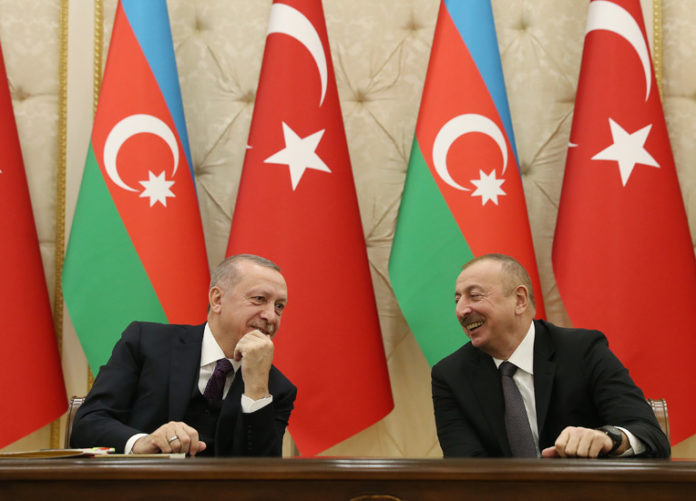YEREVAN (Azatutyun.am/PanArmenian.net) — Turkish Foreign Minister Mevlut Çavusoglu on Thursday, July 21, made the normalization of Turkish-Armenian relations conditional on Armenia negotiating a peace accord with Azerbaijan and opening a land corridor to Nakhichevan.
Çavusoglu complained that Yerevan has taken no “concrete steps” in that direction after four rounds of Turkish-Armenian normalization talks held this year.
“We don’t yet see clear steps from Armenia on the Zangezur [corridor] and other projects or the peace treaty,” he told Turkish state television. “Armenia’s leadership headed by Prime Minister Pashinyan should take positive steps for peace. Words alone are not enough.”
“Whether Armenia likes it or not, this is the reality,” said, pointing to the Turkish-Azerbaijani alliance. “We are one nation and two states. That is why if there is to be peace in the region, everybody needs to take steps, including Georgia and Central Asian countries. We expect concrete steps from Armenia on this issue, be it Zangezur, the comprehensive peace treaty or steps towards us.”
Çavusoglu has repeatedly made clear before that Ankara is coordinating the ongoing Turkish-Armenian dialogue with Baku. He stressed in February the importance of the Armenian-Azerbaijani peace treaty which Baku says must commit Yerevan to recognizing Azerbaijani sovereignty over Nagorno-Karabakh.
The Armenian government has said, by contrast, that it wants an unconditional normalization of relations with Turkey. Foreign Minister Ararat Mirzoyan complained in May that Ankara is “synchronizing” the normalization process with Armenian-Azerbaijani peace talks.








